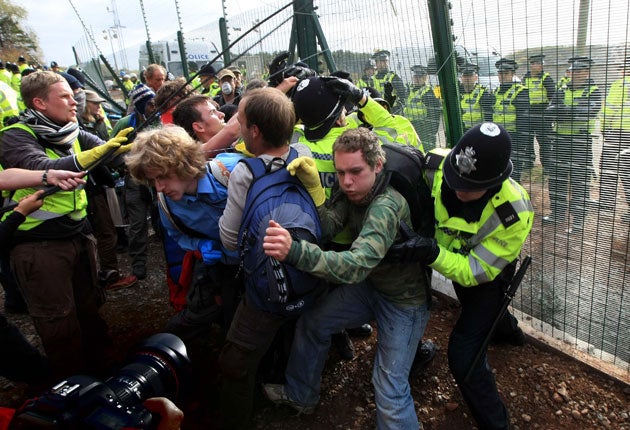Obama envoy warns of 'no deal' summit
Negotiations for the Copenhagen meeting are going 'too slow'

Your support helps us to tell the story
From reproductive rights to climate change to Big Tech, The Independent is on the ground when the story is developing. Whether it's investigating the financials of Elon Musk's pro-Trump PAC or producing our latest documentary, 'The A Word', which shines a light on the American women fighting for reproductive rights, we know how important it is to parse out the facts from the messaging.
At such a critical moment in US history, we need reporters on the ground. Your donation allows us to keep sending journalists to speak to both sides of the story.
The Independent is trusted by Americans across the entire political spectrum. And unlike many other quality news outlets, we choose not to lock Americans out of our reporting and analysis with paywalls. We believe quality journalism should be available to everyone, paid for by those who can afford it.
Your support makes all the difference.Talks to save the world from the catastrophic effects of global warming may fail, President Obama's climate change envoy said last night.
Todd Stern told Channel 4 News that pre-summit negotiations had been "too slow" and warned that it was "certainly possible" there will be no deal at December's Summit on Climate Change in Copenhagen.
"This is a tough negotiation. What we need to have happen is for China and India and Brazil and South Africa, and others, to be willing to take what they're doing, boost it up some, and then put it into an international agreement – where they're standing behind what they say, just the way we're standing behind what we say we're going to do," he added. He was speaking on the eve of crucial talks in London at the Major Economies Forum, which represents some of the world's biggest polluting nations and which today begins trying to resolve disagreements ahead of Copenhagen.
A major stumbling block preventing an agreement is about where the money will come from to pay to help developing countries go low-carbon – which could cost $100bn (£61bn) a year by 2020.
Months of talks have failed to break a deadlock between developing nations, which blame the West for creating the problem, and richer countries uneasy at the prospect of footing the bill to help poorer nations go green.
Much is at stake. Unless a deal can be reached, many millions could go short on food and water, or find themselves battered by storms and floods on an unprecedented scale. Rising sea levels would submerge entire islands, such as the Maldives; with the death toll from climate change approaching hundreds of thousands a year.
Speaking to the IoS yesterday, the Secretary of State for Climate Change, Ed Miliband, echoed Mr Stern's fears: "We are very close to a deal not being done at Copenhagen. But it will be a tragedy if the world fails to act." He has urged delegates at today's talks to put their differences to one side: "With only 50 days to go before the final talks at Copenhagen, we have to up our game. Britain is determined to throw everything at this because the stakes are so high."
But the deal is already surrounded by red tape – negotiators at Copenhagen will have just five days to try and cut through 200 pages littered with around 2,000 disputed sections.
While governments continue to talk over the details, there was little sign of hesitation among hundreds of climate camp demonstrators, who began a weekend of protests yesterday in an attempt to shut down a coal-fired power station at Ratcliffe-on-Soar, near Nottingham. Police held more than 20 people prior to the protest on suspicion of conspiracy to commit aggravated trespass. Further arrests were made when a perimeter fence was breached.
Goals – results of failure
1. Developed countries to cut emissions of greenhouse gases, failure will take the world into dangerous and catastrophic climate change.
2. Developing countries to limit growth of carbon emissions or face famine, droughts or flooding.
3. Fund to help developing countries create low-carbon economies, with no aid, some will have little chance.
4. Make the latest green technologies available in poorer parts of the world to help reduce pollution.
5. Reduce deforestation, responsible for a fifth of the world's carbon emissions, otherwise 85 per cent of the Amazon rainforest could be lost.
Join our commenting forum
Join thought-provoking conversations, follow other Independent readers and see their replies
Comments